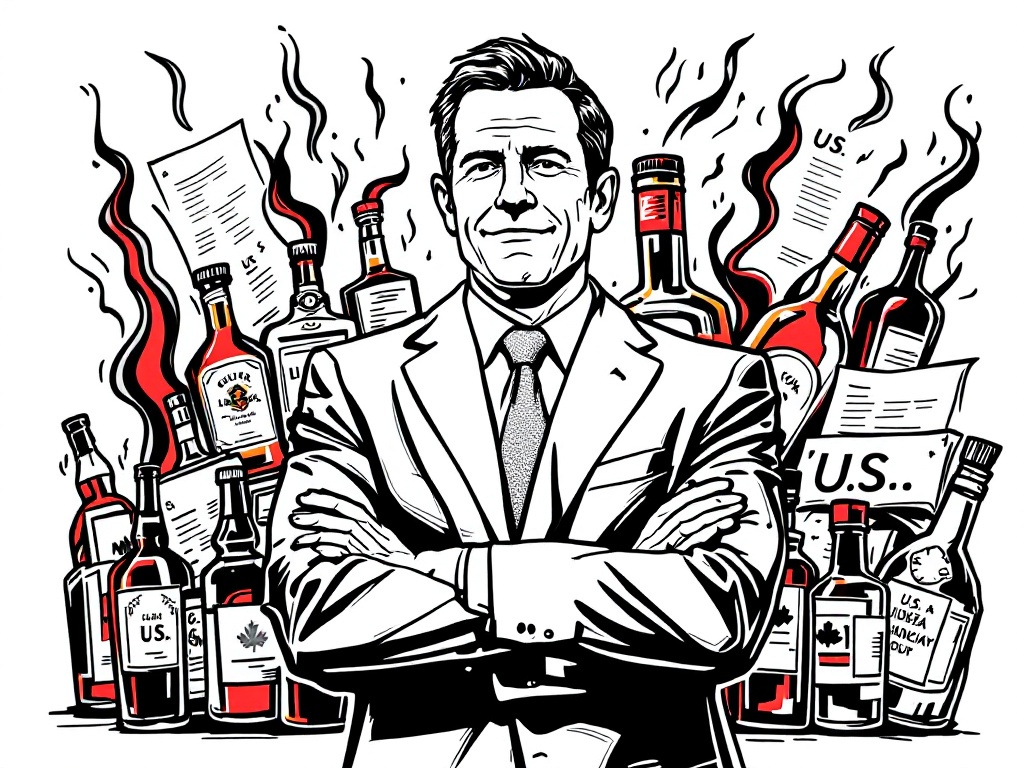B.C. Premier Responds to U.S. Tariffs with American Liquor Ban

Vancouver, Sunday, 2 February 2025.
In response to U.S. tariffs, B.C. Premier David Eby announces a ban on U.S. liquors from Republican states, aiming to shield local workers and businesses.
Immediate Provincial Response
On February 1, 2025, British Columbia Premier David Eby announced swift countermeasures against impending U.S. tariffs, which include an immediate halt to purchases of American liquor from Republican-led states [1]. These measures come in response to U.S. President Donald Trump’s confirmation of a 25% tariff on most Canadian imports and 10% on energy imports, set to take effect on February 4, 2025 [1][5].
Economic Impact Assessment
The stakes are particularly high for British Columbia’s economy, with government analysis projecting potential losses of approximately $69 billion if the tariffs persist until 2028 [1]. Premier Eby has compared the potential economic impact to the 2008 financial crisis, suggesting these tariffs could have an even more severe effect on the province [1]. To counter these challenges, the province has identified 10 private-sector projects worth $20 billion for expedited development to help diversify trade beyond the U.S. market [1].
Part of Broader Canadian Response
B.C.’s actions align with Canada’s national response, as Prime Minister Justin Trudeau announced retaliatory measures including 25% tariffs on $155 billion worth of American goods [3]. The Canadian countermeasures will be implemented in two phases, with immediate tariffs on $30 billion of U.S. goods starting February 4, 2025, followed by an additional $125 billion to be implemented by February 22, 2025 [5].
Strategic Trade Diversification
Beyond the liquor ban, Eby has directed the B.C. government to prioritize Canadian goods and services in procurement [1]. The province is particularly concerned about the forestry sector, with Eby noting that ‘one out of every five to six lumber used in the U.S. comes from Canada, and it just got 25 percent more expensive’ [1]. The B.C. Chamber of Commerce CEO, Fiona Famulak, has endorsed these measures as providing ‘a roadmap of how B.C. is planning to build itself up’ [1].